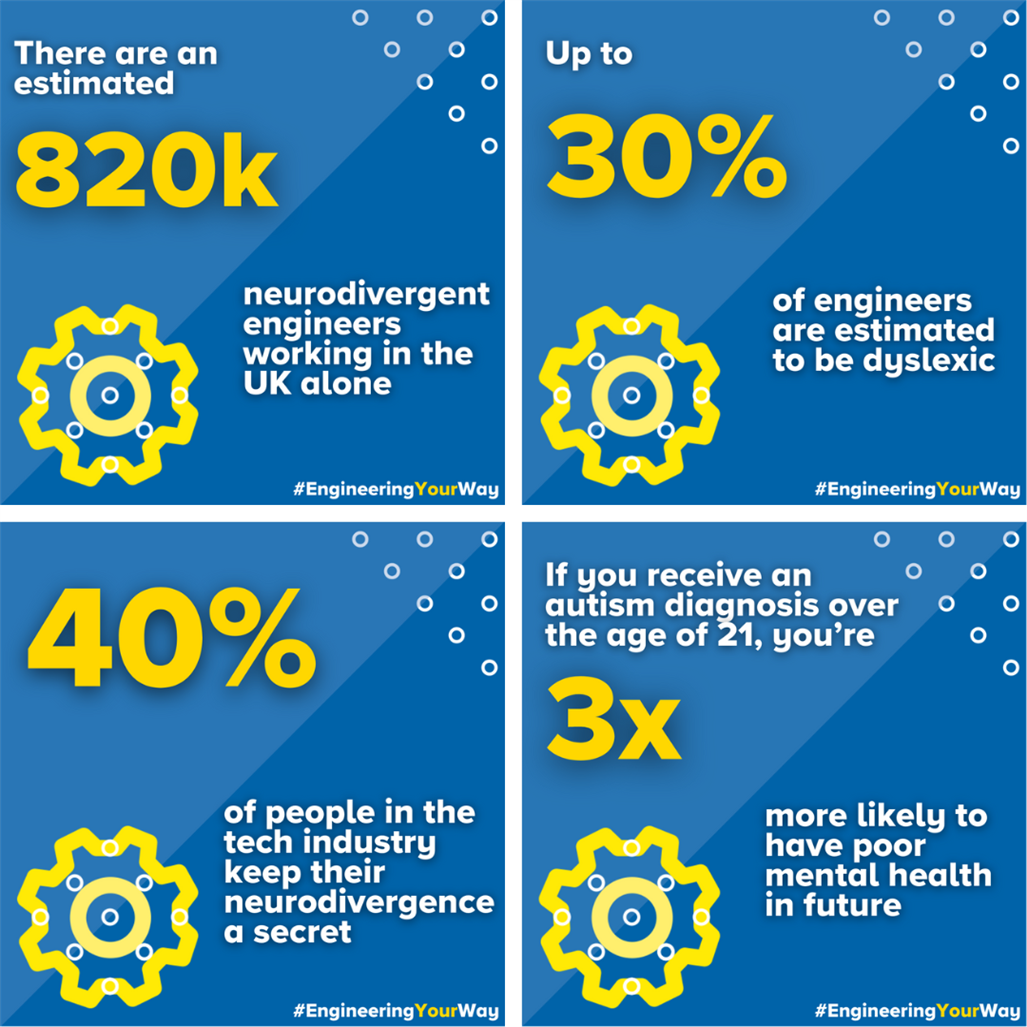
What do you think to these neurodiversity stats?

Research has shown a greater incidence of neurodiversity amongst engineers, but it's shocking that so many are being held back from achieving their potential, or feel like they can't be their full selves.
With this in mind, we're interested in knowing:
1) If you're a neurodivergent engineer, what more do you think could be done to raise awareness of neurodiversity in engineering, so that neurodiverse people can be empowered to reach their full potential?
2) If you know or support someone who is neurodivergent, what support do you feel could be put in place so that you could understand how best to help them thrive?
Remember, our Differently Wired Hub is now live as part of our new Engineering Neurodiverse Futures programme.
It's a free online resource for neurodiverse people and those who support them, with expert content on neurodiverse conditions, how to offer support, and how to get a diagnosis.
Find out more and join the hub here ️
https://www.myfoothold.org/engineering-neurodiverse-futures/
Let us know your answer to our questions in the comments below!